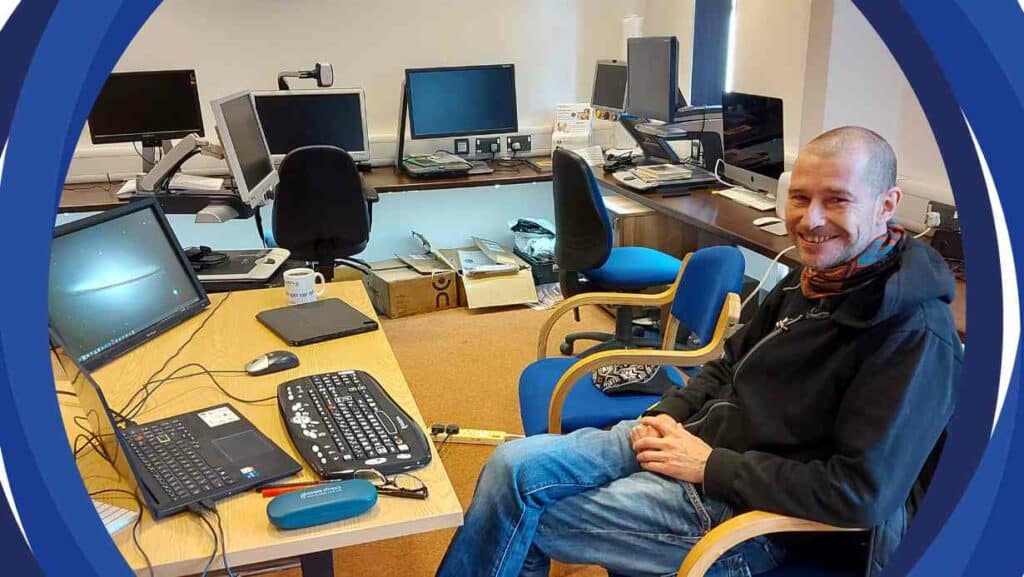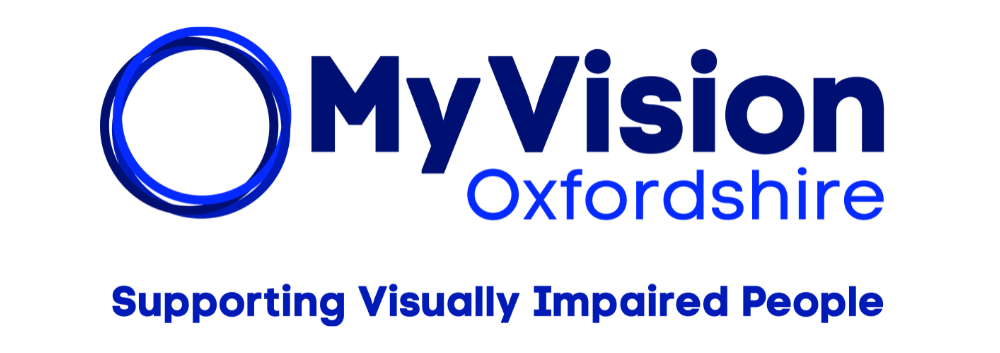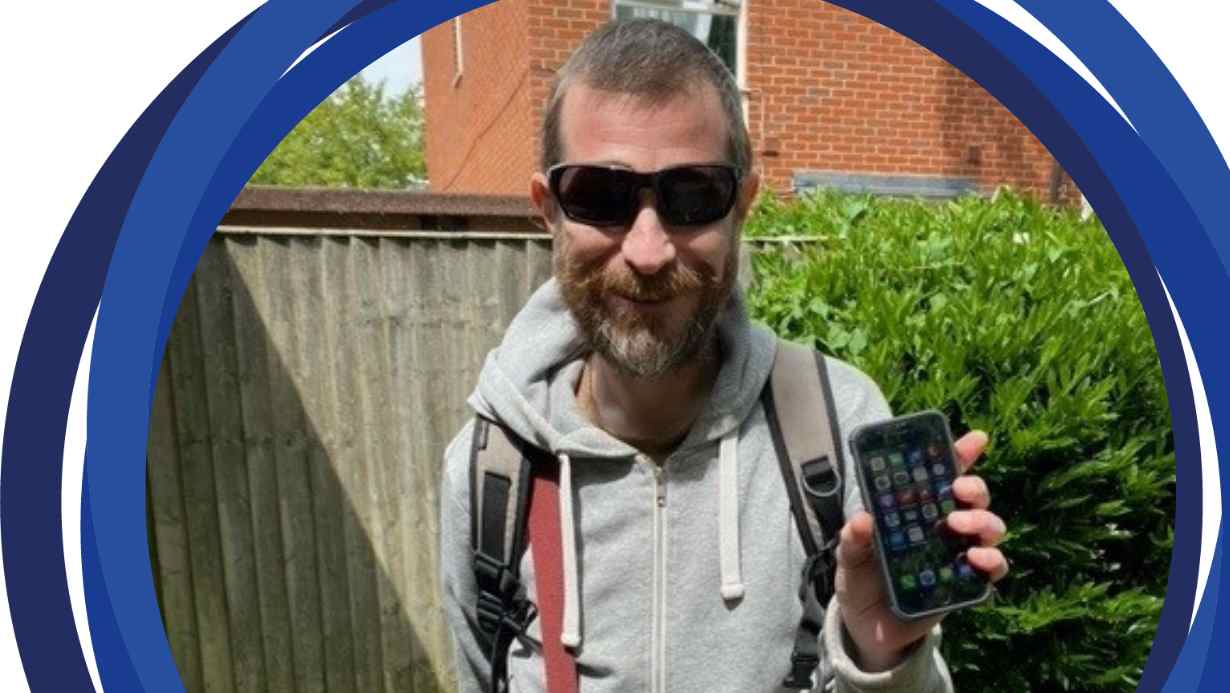Duncan suffered a stroke in the spring of 2021 which led to his sight loss.
He has been meeting with us in order to re-gain his confidence and to acquire knowledge about assistive technology available for people with visual impairments.
When asked about how his visual impairment has impacted his life, Duncan’s response was, “how hasn’t it?”
“I haven’t worked since my stroke, and that has left me with at least forty hours a week when I would’ve been working that I now have to fill with something else,” said Duncan.
“As far as practical things are concerned, things take me twice as long as they used to. So that goes from finding my key in my pocket, to pulling it out, to looking at which key I need to put in the lock.”
Duncan’s visual impairment also affects things such as cooking. “I’m not patient enough to cook properly and I eat a lot more rubbish,” he said.
“I’m not as confident as I use to be socialising. I go out a lot less than I used to. Many people think that I’ve retired from everything because of my visual impairment. They don’t seem to have accepted the fact that even though I may have reduced vision I am still able to do things.”
Duncan told me that such misconceptions and assumptions about visual impairment need to be addressed.
“I feel like that white stick is a beacon for my blindness, so in some ways that white stick is great. In some ways it’s the worst thing I’ve ever had. It’s very difficult to decide whether I like the thing or not.”
“I find that on social occasions or even walking down the street, people who wouldn’t normally talk to me try to engage me in conversation. That’s a weird thing to have to deal with. Sometimes I’m ready for it and sometimes I’m not in the mood for new interactions. There is also such a variety in the ways that people treat you. There are people who will approach you, talk to you, offer you help. The other side of the coin is people who don’t even see the white stick. They don’t even move when you’re trying to pass and just walk straight into you. It’s a strange thing that white stick.”
“That white stick means probably to a majority of people that you’re completely blind, so there’s an awful lot of lack of understanding of blindness and visual impairment […] I was waiting for the bus one day. I held out my arm out to get the bus to stop. And the bus driver asked, ‘how did you see the bus?’ and that really upset me.”
Duncan said that he feels many people define him by his cane. “They can’t see anything else about you, and they make loads of other assumptions about how there must be something wrong with you,” he said.
“[The lack of understanding about visual impairment] extends all the way to how the able-bodied community sees the disabled community and I don’t think that the penny dropped for the able-bodied world.”
Duncan worked as an editor for The Oxford University Press until 2016, and then spent the following five years until his stroke working as a freelancer. Jamie, our Resource Centre Assistant has been working closely with Duncan teaching him how to use assistive technology that could help Duncan return to his work.
“Jamie and Nathan (our Client Advice Officer) applied to get me an Apple phone which I have now mastered thanks to the weekly sessions with Jamie.”

Duncan is a big sports fan, and an avid supporter of Tottenham Hotspur. “When I watch football, I’m able to follow where the ball is, but when it comes to say the penalty area and the corner comes in and there’s twenty players right in the middle fighting for the ball it just looks like a complete mishmash of arms and legs to me. I’ve had to remember what could I actually see when I had vision. It wasn’t always perfect, and I often had to wait for the slow-motion replay. Now I always have to wait for the slow-motion replay.”
“It’s made me very critical of the commentary. The difference between radio commentary and television is chalk and cheese. The TV people have no thought whatsoever for those who are visually impaired.”
Duncan first found out about MyVision when he was referred to us by an employee from the Oxfordshire County Council. Since then, Duncan has been having regular technology training sessions, as well as counselling sessions with Jill, our Counsellor.
“[Jill] made a huge difference in my life. I’ve really enjoyed talking to her. I feel that I have made really good progress.”
We continue to have regular counselling meetings as well as regular technology training with Duncan to help him gain more confidence and independence on his journey.
If you would like to learn more about our counselling services follow the link – Counselling – MyVision Oxfordshire and if you would like to learn about our technology services, click here – Technology Training – MyVision Oxfordshire


